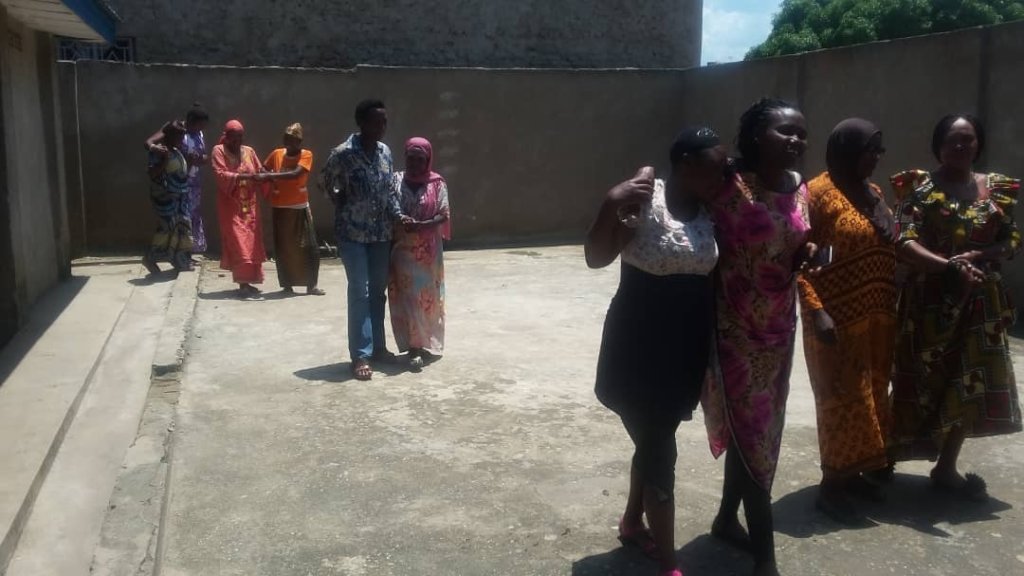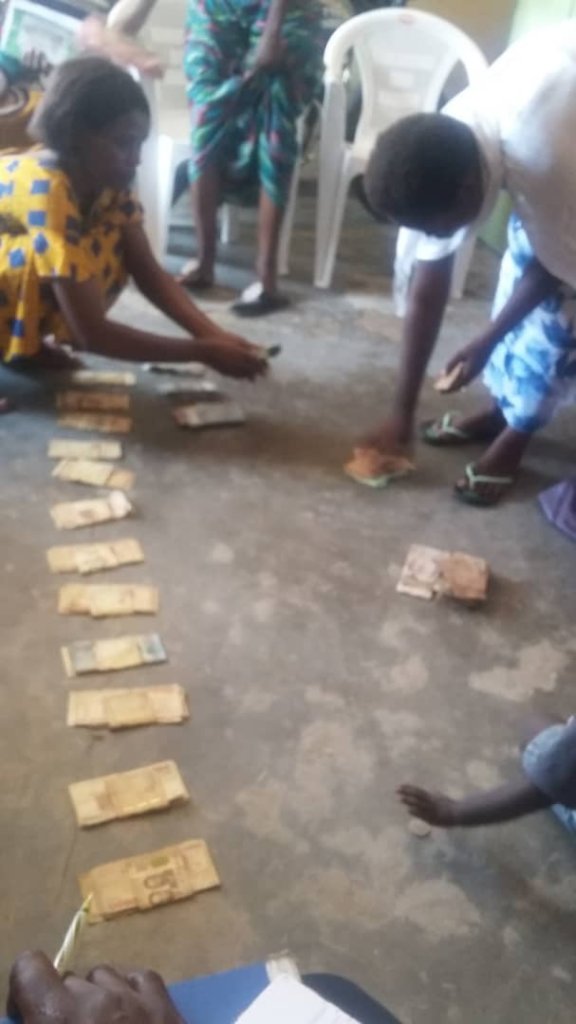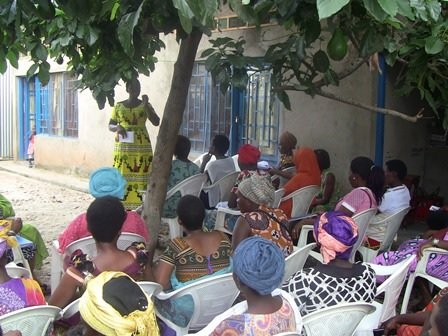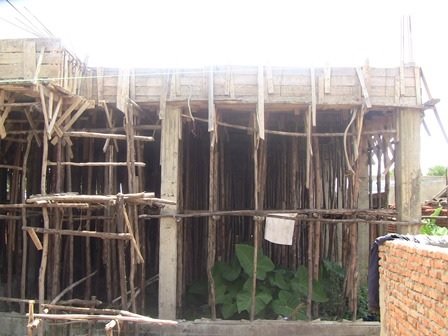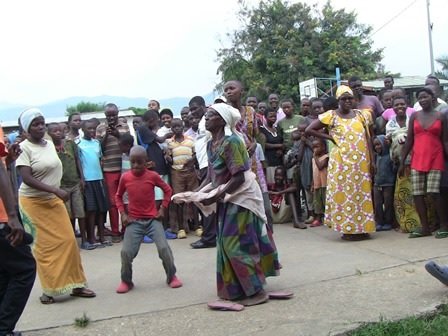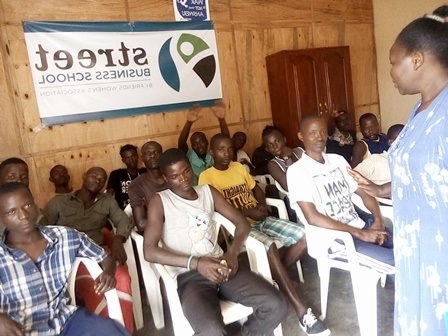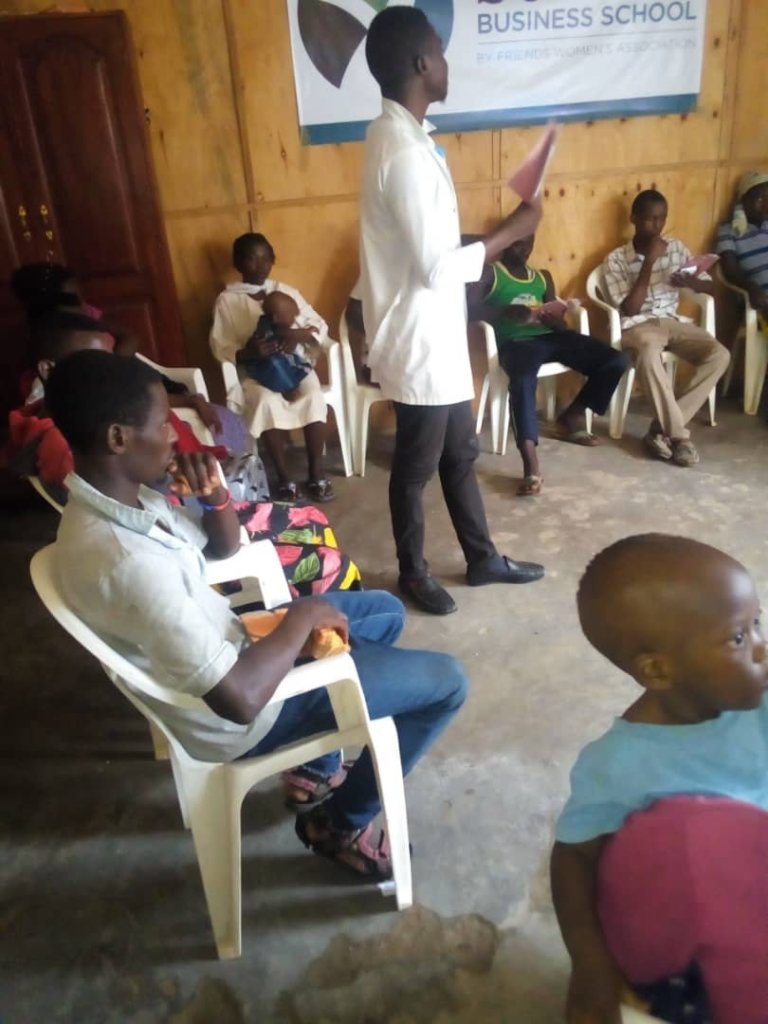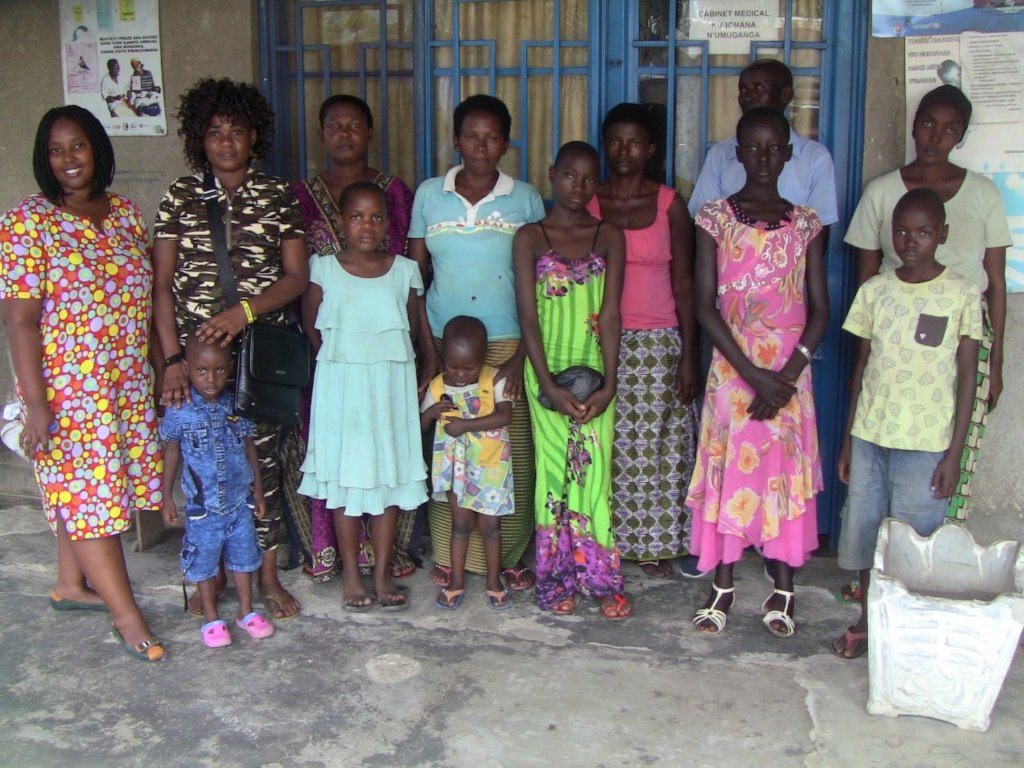By Parfaite Ntahuba | National Coordinator
Annoucement: Starting today, Monday, April 8, at 9:00 AM Eastern Daylight Time, GlodalGiving is promoting a Little by Little campaign where they will matching donations up to $50 with a 50% match. In other words, a $50 donation will receive a match of $25. This is a good method of enhancing your contribution. The campaign last until midnight on Friday, April 12, but the match will continue only until the funds run out. Therefore donors need to make their contribution early in the week. To donate click on goto.gg/31891.
ACTIVITIES
Rape Survivors’ Support (RSS)
One three-day trauma healing workshop was done on March 22-24, 2019 for GBV survivors.
Testimony
“My name is Alice. I’m 19 years old. My parents got divorced when I was 12 years old. One day at night, my father wanted to rape me. He brought me in his bedroom and unclothed me. I felt so afraid that I told him that I wanted to go to the toilet. He didn’t accept and we went together to the toilet. He came with a machete. Whe, he opened the door of our house, I ran away. He ran after me, but he failed to catch me. Then I went to live with my aunt. Later I became a house girl. My boss raped me. He was put in jail. And because his wife was afraid, she gave me BIF300,000 so that her husband can be released. After few days, I lost my job. As my father was continuing to threaten me, I left the countryside and came here in Bujumbura. I got married. When I got a baby, my husband married another wife. As I had anywhere to go, I remained in the house. This means that we were two wives in the same house. My husband was always beating me until I left him. Now, I’m trying to survive together with my child. Thanks a lot for this workshop because I got this opportunity to share my sad story.”
Comment: Participants who have such sad stories are always encouraged to join the self-help groups so that they can have their own financial income. However, the main challenge for such cases is how to start saving what they don’t have because most of them are very poor.
At the end of March 2019, 38 self-help groups were functioning
During the month of March 2019, two self-help groups, “AMAHORO” and “KEREBUKA”, shared the money they have saved for one year (See the table below).
Name Capital in Francs Capital in $ Benefit Benefit in USD
AMAHORO 2 873 400 1596 1 741 450 967
KEREBUKA 1 683 200 935 851 600 473
There was a meeting with the self-help groups’ representatives. 31 groups were represented. The main recommendation was to find for them microfinance where they can have access to microloans. They also expressed their wish to have a common project for their socio-economic life improvement.
Caring for HIV Positive People (CHIVPP)
During this month of March 2019, medical follow up and home visits were done for our HIV positive people.
Maternity Ward Building
In the month of March 2019, nothing new was added to our building project. This year, we need to raise at least $20,000USD to continue with this project.
Improving Women’s Reproductive Health (IWRH)
FWA community health workers and FWA staff have continued to mobilize people for HIV voluntary test and family planning.
Four discussion groups were done: one for sex workers, one for sex workers partners, one for pregnant women together with their husbands, one for HIV positive children together with their parents.
Sex workers
13 out of 20 participants did HIV voluntary test. All of them were found HIV negative. In addition 10 of them joined the self-help groups.
Sex workers’ partners
Out of the 20 participants, 11 men accepted to do HIV voluntary test. No one was found HIV positive.
Pregnant women with their husbands
On March 14, 2019 14h was held the speaking group for pregnant women and their husbands who are beneficiaries of the service of PRENATAL CONSULTATION for the prevention of the transmission of HIV/AIDS from mother to child.
There were 20 participants including four men and sixteen pregnant women. The objective of the meeting was to underline the importance of HIV voluntary test during pregnancy and to see together the components and importance of the Mother-Child notebook.
After the exchange of a lot of knowledge on the mother-child transmission we found together that the men present have any idea about it. It was discovered that even the pregnant women had little knowledge about the components and the importance mother-child transmission.
The transmission includes the following parts:
1) Part 1: The complete identification of the mother, the child, the husband and a person accompanying the mother during delivery
2) Part 2: The previous obstetrical history of the patient as well as the risk factors
3) Part 3: Place where we find prenatal consultations required and optional, proper and post-natal testing
4) Part 4: Summary of child labor and the health status of the baby delivered
5) Part 5: Birth certificate
6) Part 6: Family planning
7) Part 7: Monitoring the child's weigh andt growth
8) Part 8: Appointments for child vaccination
9) Part 9: Medical prescriptions for both the mother and the child
10) Part 10: a summary of the child's development and diet.
The discussion was concluded with the importance of voluntary testing for HIV and other sexually transmitted infections in general and during pregnancy in particular. Those who were present and who did not benefit from this medical procedure called voluntary testing HIV / SYPHILIS have seized the opportunity to benefit from it. No one was found HIV positive.
HIV positive children with their parents
The discussion was about the practice of adherence and the impact of compliance on their health. Each of the children exposed what change happened in his way of taking the drugs after our last discussion: one did not change anything because he was taking them correctly; the others improved their medication intake especially at the frequency level because some children often forgot to take them. Now, they have testified that they are less sick.
There was then a discussion with the parents and guardians of the children. We asked them how they help their children to take the drugs. One of the parents said that being HIV-positive himself, they take the medicine together to make sure his child is taking it too. Another said that his child has enough grown; he knows when to take his medication without reminding him. Another said that his child is responsible. He even reminds the parent that it is time to take the drugs.
At the end, they discussed how to monitor their children's medications in a better way. The conclusion was that parents and guardians of children will ensure that their children are properly treated every day by reminding them to take the retro drugs on time or by giving them the drugs themselves.
Action on Gender-Based Violence (AGBV)
A consultant was hired to conduct to evaluate the impact of this project since 2014. The report will appear very soon.
People Interviewed
Venue Men Women Total
Kibogoye 16 20 36
Kibimba 18 21 39
Total 34 41 75
Medical Team
CONSULTATIONS
95 cases were consulted by our medical doctors, including 19 children, 58 adults and 18 HIV positive people (16 under ARVs treatment came for medical consultation and 2 came for medical follow up after they were found HIV positive). The nurse received 336 patients including 258 adults and 78 children.
LABORATORY
In the month of March 2019, apart from HIV voluntary testing, there were a total of 207 tests.
Test Test completed Positive Negative
G.E. Malaria test 75 23 52
Quick malaria test 15 9 6
ECBU Urine test 11 11 0
Selles Stool test 14 14 0
Pregnancy 28 11 17
Sero-widal Typhoïd fever 28 22 6
Glycémie Diabetes 9 6 3
RPR VDRL Syphillis 13 0 17
Complete Blood Count 14 8 6
Total Tests: 207
FAMILY PLANNING
333 people received contraceptives from FWA’s nurse, including 227 old cases and 106 new ones. 272 received the contraceptive injection, 18 were given pills, 8 received implants, and 35 received male condoms.
PRENATAL CONSULTATION (PNC)
In the month of March 2019, 38 women came for prenatal consultation (PNC), including 13 who came for PNC 1, 15 for PNC 2, 4 for PNC 3 and 6 came for PNC 4.
At the end of March 2019, we had a total of 31 HIV positive pregnant women under retro drugs.
Anti-Retroviral SITE
At the end of March 2019, we had 301 patients under retro drugs followed at NTASEKA clinic, including 244 women and 57men.
PHARMACY
FWA had all necessary medicines for the month of March 2019.
PSYCHOSOCIAL TEAM
In the month of March 2019, because of lack of screening kits, only a total of 117 people received pre and post HIV test counseling and were tested for HIV; 59% of them were women and all the four people detected HIV positive were women with 3% of seropositivity.
Total Number of People Tested: 117
Total Number of Women Tested: 69
% of People Tested Who Are Women: 59%
Average Age: 28
Median Age: 26
Total HIV+ : 4
Total HIV- : 113
Number of Women HIV+ : 4
Total % Seropositivity: 3%
% of Women Tested Who Are HIV+: 6%
By Parfaite Ntahuba | National Coordinator
By Parfaite Ntahuba | National Coordinator
Project reports on GlobalGiving are posted directly to globalgiving.org by Project Leaders as they are completed, generally every 3-4 months. To protect the integrity of these documents, GlobalGiving does not alter them; therefore you may find some language or formatting issues.
If you donate to this project or have donated to this project, you can receive an email when this project posts a report. You can also subscribe for reports without donating.
Support this important cause by creating a personalized fundraising page.
Start a Fundraiser